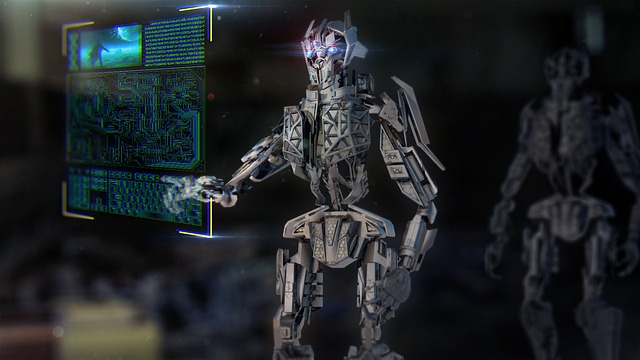Artificial intelligence (AI) is rapidly transforming many industries, and the creative arts are no exception. AI-powered algorithms can now generate poems, paint pictures, and compose music that is indistinguishable from human-created works. This raises a number of important questions about the future of creativity and the role of humans in the creative process.
The Rise of AI-Generated Creativity
In recent years, there have been a number of breakthroughs in the field of AI-generated creativity. For example, in 2018, an AI algorithm called GPT-2 generated a poem that was published in the literary magazine PEN America. And in 2022, an AI algorithm called Imagen created a digital painting that won first place in a fine art competition.
AI algorithms are able to generate creative works by learning from large datasets of existing creative works. For example, an AI algorithm that generates poems can be trained on a dataset of millions of poems. Once the algorithm is trained, it can be used to generate new poems that are similar in style and content to the poems in the training dataset.
AI-generated creativity has the potential to revolutionize the arts and entertainment industries. For example, AI can be used to create new forms of artistic expression, such as interactive art experiences and immersive virtual worlds. AI can also be used to make art more accessible to a wider audience by creating personalized art recommendations and by translating art into different languages.
The Benefits and Drawbacks of AI-Generated Creativity
While AI-generated creativity has many potential benefits, there are also some potential drawbacks to consider. One concern is that AI could displace human artists and musicians. If AI can generate creative works that are indistinguishable from human-created works, then there is a risk that people will prefer to consume AI-generated art over human-created art.
Another concern is that AI could be used to create deepfakes and other forms of misinformation. For example, AI could be used to create fake videos of politicians saying things that they never actually said. This could have a negative impact on public discourse and could erode trust in institutions.
Finally, there is a concern that AI-generated creativity could lead to a loss of originality and creativity in the arts. If AI is used to generate too much art, then there is a risk that all art will start to look the same.
The Ethical Implications of AI-Generated Creativity
The rise of AI-generated creativity raises a number of ethical concerns. One concern is the potential for AI to be used to create harmful or offensive content. For example, AI could be used to create realistic depictions of violence or to create fake images of people in compromising situations.
Another concern is the need for ethical guidelines for the development and use of AI-generated creativity. For example, it is important to ensure that AI algorithms are trained on data that is representative of the population and that is free from bias. It is also important to ensure that AI algorithms are used in a way that respects human rights and privacy.
Finally, it is important to consider the role that humans will play in the AI-generated creative process. It is important to ensure that humans have oversight and control over the AI-generated creative process and that humans are able to provide feedback on and input into AI-generated creative works.
Conclusion
AI-generated creativity is a powerful new technology that has the potential to revolutionize the arts and entertainment industries. However, it is important to be aware of the potential drawbacks and ethical implications of this technology. As AI-generated creativity continues to develop, it is important to have a public conversation about how this technology should be used responsibly.
Questions to Consider
- What do you think the future of AI-generated creativity is?
- How can we ensure that AI-generated creativity is used in a responsible and ethical way?
- What role should humans play in the AI-generated creative process?

